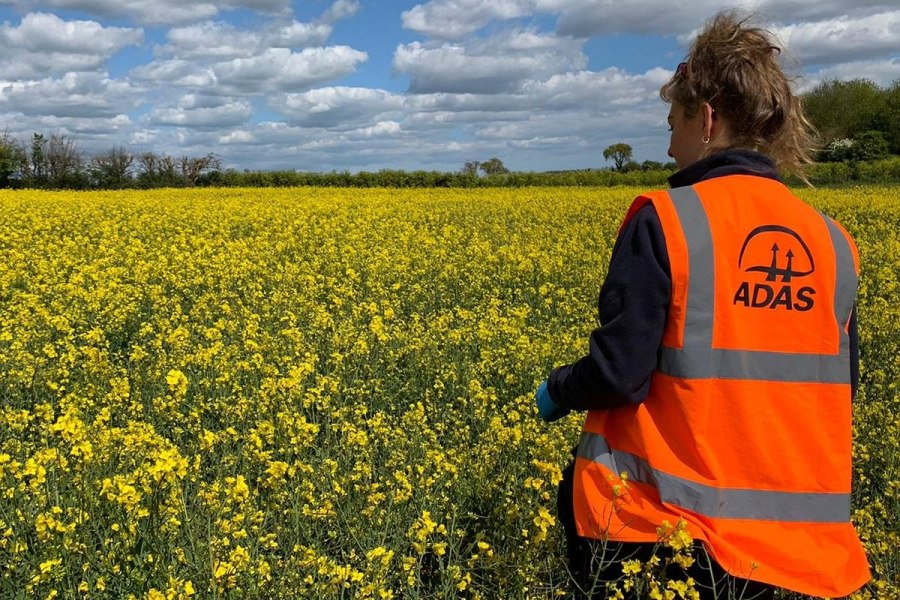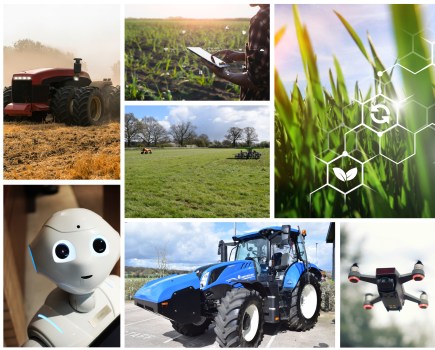Innovation geared to the rapidly changing needs of farmers is the industry’s lifeblood, but now it has to be more dynamic than ever, according to a company whose heritage is firmly rooted in applied research and its practical application. CPM discovers how.
Apply a productivity mindset across the whole business – crops, biodiversity, carbon and the wider environment.
By Charles Abel
Seventy-five years ago British farmers were asked to feed a nation recovering from war. Today thousands still do so, whilst contending with a host of challenges. With more issues on the horizon a fresh drive is urgently needed to develop practical answers so farmers can thrive.
From boosting biodiversity to mitigating climate change, and improving human health through improved diets, access to exercise, leisure and landscape, farmers face a fast-changing future, with pitfalls and potential in almost equal measure.
Central to navigating it all will be well-researched, evidence-based solutions, grounded in on-farm realities. That’s what the industry has thrived on for decades. Now it needs a new range of services geared to the evolving demands of policymakers, society and the market, says James Clarke, research director at ADAS.
“There’s no doubt farmers are going to have to work to improve productivity, of their farming certainly, but of their environmental management too. That is going to demand the best advice, truth-tested in the field, and fully joined up, to account for all the interactions across a typical farm.”
Farms can make big environmental gains, and quickly, he believes, once the drivers have been established – be they policy, state support or market reward. “The potential is considerable, especially when you apply a productivity mindset – be that increasing pollinator numbers, reducing carbon emissions, or whatever metrics are targeted.
“One thing is for sure though, taking a middle road will not do it. The key will be to make best use of inputs, technology and advice to achieve sustainable productivity across crop production and the provision of public goods, including biodiversity, the environment and climate change mitigations.”
During 40 years of work with ADAS, James has managed research centres and major research programmes and was until recently managing director of ADAS’s Soils, Crops and Water business. He has advised governments on policy, chaired the UK Weed Resistance Action Group and Pesticides Forum, and has just been appointed to the Expert Committee on Pesticides.
“Some aspects barely change,” he notes, “most notably that farmers are at the centre, productivity is important and approaches need to be integrated and holistic.
“A lot of attention is currently focused on a few relatively ‘small’ actions, such as shifting cultivation strategy. But it’s the net effect over the long-term that counts, and that demands a holistic assessment. Reduced tillage may be carbon positive in the short-term, but not if deep cultivation is subsequently required and releases much of it. A more holistic view will be vital.”
ADAS’s Yield Enhancement Networks, already in place for a number of crops, are being extended to address public goods, with YEN Zero evolving to aid carbon management and YEN Environment in development.
A new online Performance Enhancement Platform, branded Farm PEP, born from YEN and open to all, will help. It aims to exploit the new practice of agronomics, using precision technologies to enable farmers to work together in networks, supported by advisors, researchers and industry.
“The aim is to pose common questions, collaborate in trustworthy tests, compare the most telling metrics, and share explanations and understanding,” explains James. That will help make novel approaches more resilient, effectively short-cutting years of trial and error, fast-tracking to solutions that are repeatable year-in, year-out.
While farming’s challenges may become more complex, it’s important not to make them over-complicated, he adds. “We can’t achieve all things everywhere, so we need to set clear site-specific objectives, appropriate to the situation on each farm, focusing on a few factors, maybe a few species.”
Many of the classic areas of ADAS expertise remain relevant, including crop physiology, soil science, nutrition and water use, and weed and disease management. “Getting more out of non-chemical approaches will be ever more crucial, to support declining crop protection chemical options, with IFM core to it all,” he stresses.
When ADAS’s predecessor, the National Agricultural Advisory Service, started in 1946, national average wheat yields rarely topped 2.5t/ha. Agricultural research was in the hands of private individuals and agricultural societies, with dissemination to producers a problem.
NAAS offered independent, bespoke solutions for farmers, geared to each client’s unique circumstances. An advisor’s role was to offer technical, research-based advice to deliver maximum benefit, and help the client make profitable choices.
“Understanding the problem, finding the evidence and agreeing the solution, all while thinking farmer-centric and holistically, will always be vital, whether that’s to combat herbicide resistance, pinpoint the most efficacious new fungicides or develop yield enhancement networks to advance in-field performance.
“Farmers already deal with many interactions, at the farm level. This is going to get even more complex in future,” says James. “Responsible use of crop protection products within an integrated approach is at the heart of major farming systems, and our knowledge of product impacts and stewardship increases daily.”
More intelligent equipment will help, from sensors to robots working autonomously. Data gathering will be ever more important, to prioritise what needs doing, how to achieve it and to demonstrate the results. That could range from disease monitoring to preserve crop yield, to population monitoring to determine increases in pollinator numbers.
Given that robust, farmer-centric science will need communicating to farmers at a practical level, could we see the return of a national network of Experimental Husbandry Farms, a staple of ADAS work for so long? “We already have a virtual EHF network with every farm involved in field trials collectively gathering information to create the resilient solutions we need,” says James.
Drawing in the wider expertise of ADAS’s parent company, RSK, which operates globally, helps. A very diverse knowledge-based business, RSK works in environmental, construction and energy-based industries, focusing on meeting client needs. “Being independent and technical/evidence-based means we may have to challenge client perspectives and, if necessary, provide them with evidence that may be unpalatable to them. This is important for both identifying and providing robust solutions.”
One current hot topic is agri-environment schemes, with many requiring help making the decision to apply, choosing the most appropriate options, and with ongoing management.
ADAS offers farm business consultancy, helping develop business plans for a change of direction, diversification, succession planning or improving the efficiency of a current system, including advice about where funding may be available.
The ADAS Policy and Economics team has expertise in valuing natural capital and ecosystem services, and creating trading platforms, offsetting schemes and Payment for Ecosystem Services (PES) schemes. This includes a detailed understanding of the various private and public payment approaches associated with ecosystem services schemes.
Sustainability benchmarking gives an independent perspective to identify areas for improvement, develop a standardized set of processes and metrics and set performance expectations. Catchment management and diffuse agricultural pollution services also feature.
In the vegetable sector, ADAS leads the Interreg 2 Seas INNO-VEG project, developing innovative research into field vegetable and potatoes. The four-year project began in August 2018, with a programme of 48 field experiments set up in the UK, France, Belgium and the Netherlands this year to develop an overarching protocol for integrating crop sensing data into field research methodologies.
“When ADAS began, its function was to alleviate the main concern of the day – enhancing food security,” reflects James. “Today we must look to integrating that in a wider context. Yields need to be sustainable in the longer-term. Without environmental sustainability, we cannot hope to adapt successfully to climate change or tackle global food poverty.
“That is why we will continue to research, investigate, analyse, assess, support, and drive innovation in the agricultural and environmental sectors. Let’s see what the next 75 years brings!”
ADAS Timeline
- 1944 Agriculture Bill recommends National Agricultural Advisory Service
- 1946 NAAS formed by MAFF
- 1971 NAAS rebranded as ADAS
- 1987 ADAS starts charging
- 1997 ADAS privatised
- 2016 RSK buys ADAS
- 2022 75th Anniversary
ADAS in 2022
- Offices across England and Wales
- Over 360 staff, 60 specialist subjects
- Revenue £23M, EBITDA £3.5M
- Part of £1bn turnover RSK Group global expanding business, EBITDA £100M
Sponsor’s message
ADAS is the UK’s largest independent provider of agricultural and environmental consultancy, policy advice and research and development. We understand food production and the challenges and opportunities faced by organisations operating in the natural environment. With 75 years of experience in the farming and environmental sector, we translate science into pragmatic, workable solutions for farmers, landowners, corporate organisations and government.




